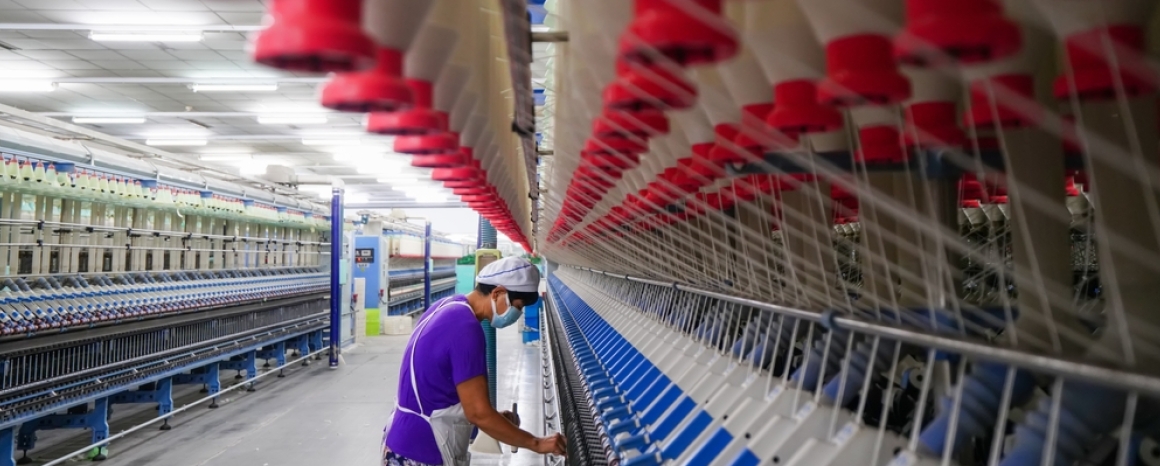Case studies

Reporting against the CTF: ONE+All

Gender data: Informing gender-responsive human rights due diligence


Human rights due diligence (HRDD) is the most practical and credible way for businesses to manage their human rights impacts on an ongoing basis. Done well, it helps businesses protect workers, safeguard reputations and strengthen supply chains.
ETI is the leading expert on HRDD. For 25 years we have worked with companies, trade unions and NGOs to address human rights risks in global supply chains. We are uniquely positioned to help companies implement HRDD in a meaningful, credible and accountable manner.
Mandatory human rights due diligence is simply HRDD enshrined in law. Increasing numbers of governments worldwide have been introducing these requirements for companies and this trend is continuing at pace. Some of this legislation is also becoming more prescriptive, with requirements that look at the full extent of the value chain and increasing the number of companies in scope.
With growing momentum in this area, no responsible company can choose to ignore human rights due diligence.
Through practical guidance, tailored support and impactful collaboration, ETI advances human rights in business. ETI membership enables companies to access advice and resources relevant to their most pressing risks and aligned to our ‘Progression Framework’, designed to help businesses build their capacity to act. Our ETI HRDD Framework is a free resource to get you started. Designed to guide any company through a four-step process, the framework helps companies to understand, prevent, mitigate and remedy human rights risks in their own operations and supply chains. Through ETI membership, companies can access more detailed support suited to their individual needs.
Here’s how we support company members:
Our Progression Framework guides businesses from where they are, to where they need to be. This includes support to undertake a gap analysis of current practices and the development of an action plan focused on a human rights due diligence approach and structured around the UN Guiding Principles on Business and Human Rights.
Company members gain access to regular, interactive workshops on specific topics and issues impacting human rights in supply chains including identifying labour rights risks, strategy development and remedy. ETI invites company, NGO and trade union members to speak on their areas of expertise and share examples of good practice, with opportunities for all participants to engage and share their learning.
We have developed a framework that enables company members to report publicly on their human rights due diligence process in a trusted and credible format, covering areas such as governance structures, risk assessment and supply chain transparency. Our approach also prepares company members for new legislative reporting requirements.
ETI members commit to working together to address complex or underlying human rights risks in their supply chains. This can range from shaping industry standards, to influencing emerging legislation and collaborating on joint responses to emerging issues. As the only multi-stakeholder initiative with a tripartite governance and membership structure, ETI is well placed to facilitate meaningful engagement and collective action for companies together with trade unions and civil society members, which is an expectation of emerging legislation.
Through ETI membership, companies, trade unions, and NGOs can participate in targeted localised and international initiatives to address human rights risks in global supply chains. From gender-based violence to climate impacts on workers, members can learn from and implement practical solutions to prevent, mitigate and remedy their salient risks. Explore some of our current initiatives.
ETI membership enables companies to undertake their human rights due diligence with unmatched expertise, credibility and leverage.
Support and collaboration – businesses cannot tackle human rights issues alone. Businesses need support, collaboration, and external stakeholder engagement to address the issues workers face.
Understanding risk – Businesses must be able to identify risks workers face and specifically understand salient issues in their supply chains.
Meet legislation – With global pressure to strengthen business and human rights legislation, those ahead of the curve are better placed to adapt.
Protect your brand – Consumers are increasingly motivated by company ethics. Demonstrating respect for human rights builds trust and strengthens brand integrity.
Supply chain resilience – From climate change to future pandemics, investing in people and sustainable business models is critical to long-term resilience.
Investors – With increasing focus on environmental and social governance, investor risk analysis places value on not only strong but ethical business-supplier relationships, mitigating risk of disruption and disrepute.
View a list / map of the latest business & human rights legislation



